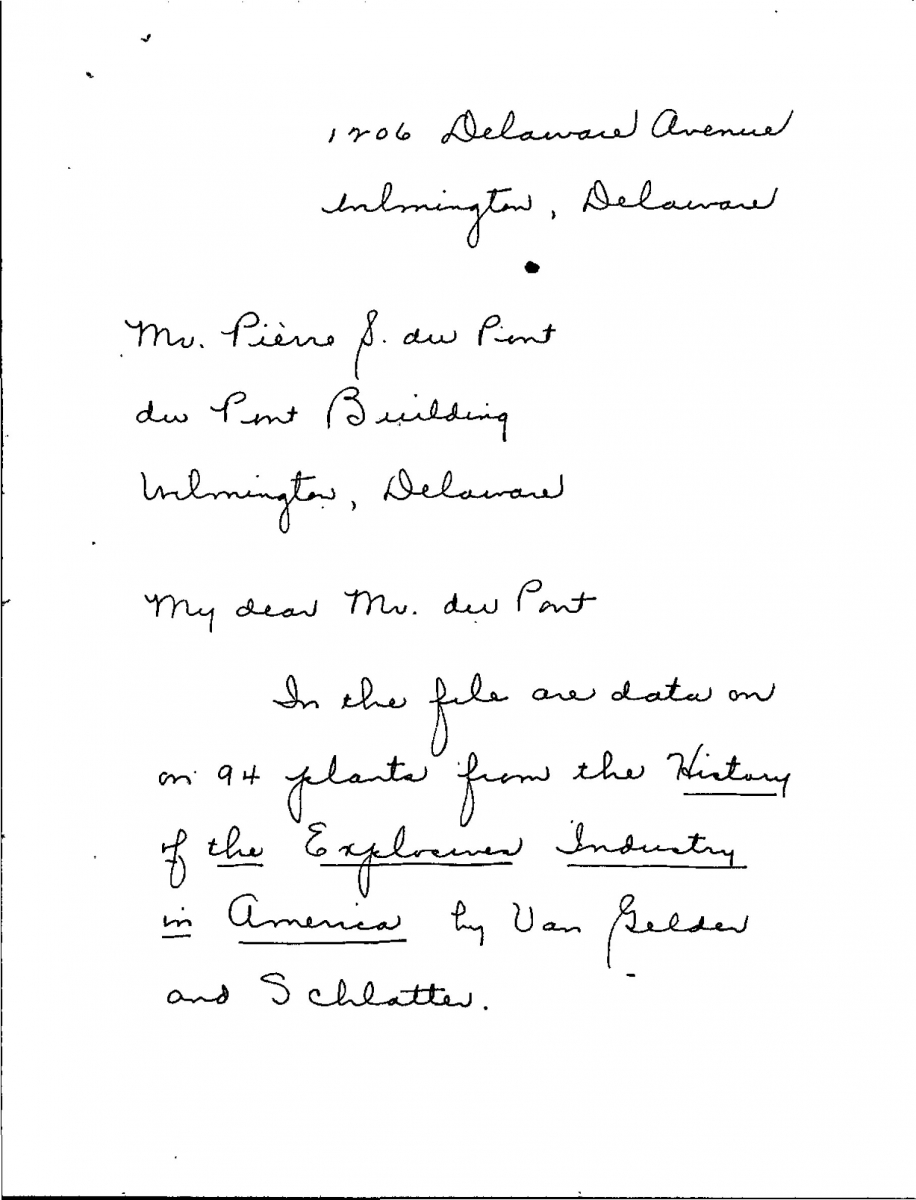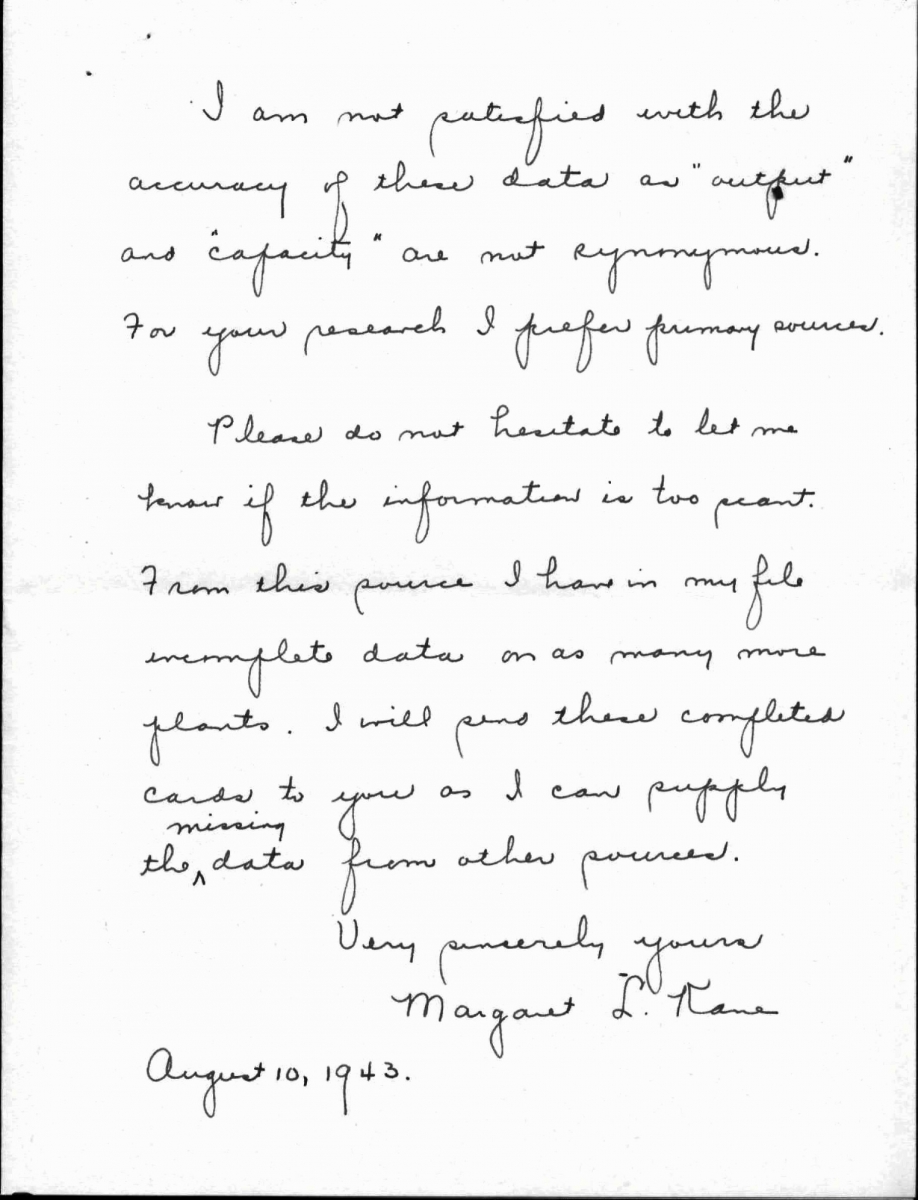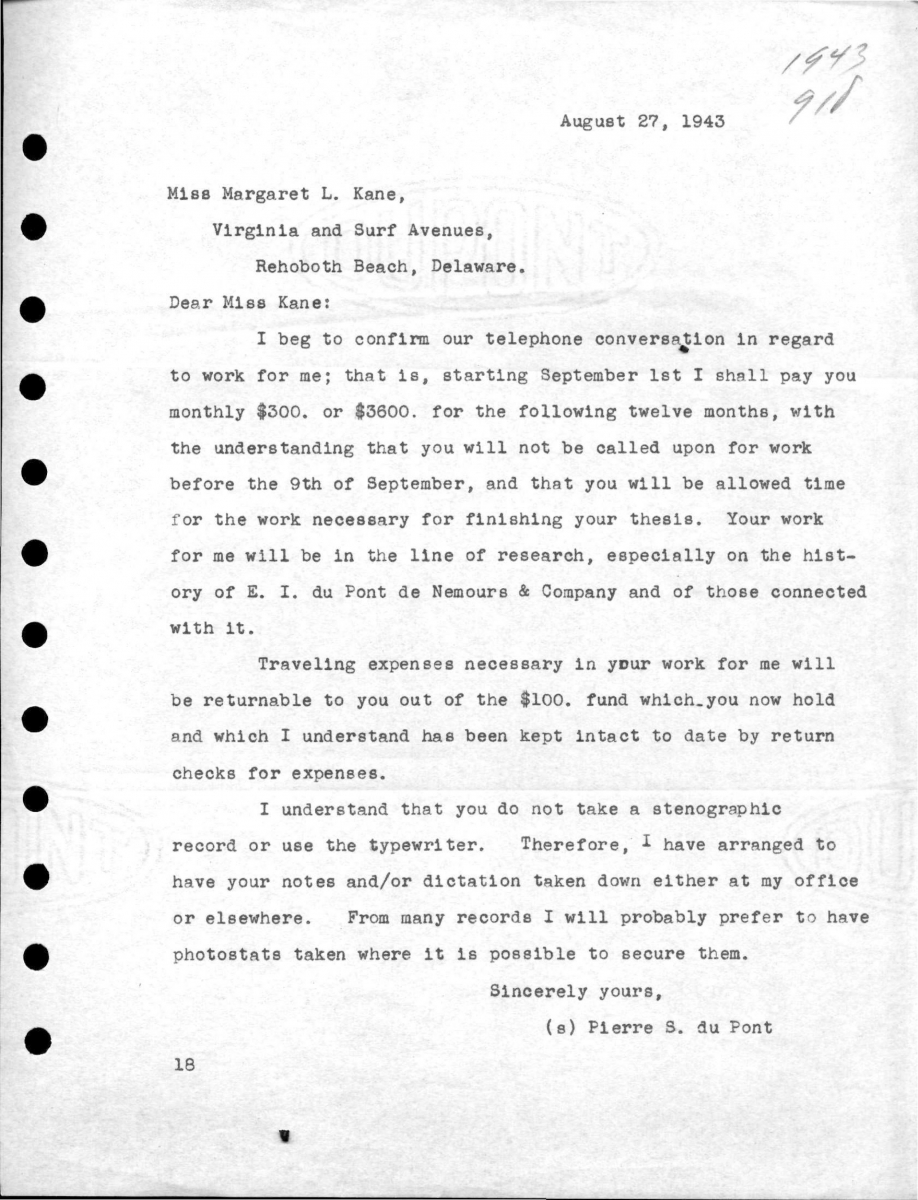Pierre S. du Pont (1870-1954), like many in his family, had a voracious appetite for historical research and preservation. Whether it was glass balls installed on the decks of the Fingal that allowed daylight into lower decks and cabins; or the transformation of a working farm into an internationally acclaimed horticulture institution; or acquiring the Kennett Pike and making it a state highway - P.S. documented his research. In the spring of 1943 there was a topic that stumped him – his family genealogy.
Contacting the Delaware Historical Society for information on the Gayley School[1] which his father Lammot du Pont (1831-1884) attended, du Pont was referred to a Miss Margaret Kane.
Pierre had retired from the DuPont Company, and was preparing for the family’s 150th anniversary celebration. The ancestral home, Eleutherian Mills, and surrounding properties in the Brandywine Valley were being developed into what is now Hagley Museum and Library.
At the time Ms. Kane was teaching at the Wilmington High School and in her spare time writing her thesis, The development of secondary education in Delaware before 1900, a final requirement in receiving her Doctor of Philosophy degree from the University of Pennsylvania.
Ever the perfectionist and progressive, Kane was known throughout the tri-state region’s libraries, historical societies, and the Library of Congress for her thorough research.


Letter from Kane to du Pont prior to hire, August 10, 1943
It was easy for Kane to incorporate the work for Pierre with her own thesis research, as some of the information paralleled – the history of education in Delaware.
In a letter dated July 4, 1943 Kane included a slide of the Reverend Samuel M .Gayley to du Pont explaining, “I thought you might be interested in the method I use to project my study. I make my own slides for four cents each. You can get an Argus Slide Projector for $22.75 and a daylight screen on a stand for $8.95 at John Wanamaker’s. Because you are progressive and want to keep your research up-to-date.”
Through the summer months Pierre and Margaret corresponded over the topic of travel expenses. In August he sent her a check for $10.06 that represented a three day trip to Washington, DC. In the letter he admonishes her for “not including charges for food, tips, etc. Will you kindly let me know the amount expended for these and any other items which should have been included in your statement so I may make proper remittance.” As the summer closed, Pierre noted that Margaret will “probably be returning to teaching in September and will not be available for further research.” An accomplished and independent woman, Margaret knew the value of having access to research materials and was well aware that a job with Pierre S. du Pont would afford her such access. She advised him in an August letter “I should much rather do research for you than return to teaching if you would consider hiring me. I am certain that Dr. Lemmel would gladly release me for awhile as enrollment in Wilmington High School has dropped considerably at this time.”
On September 1, 1943 Margaret Kane officially began employment at the DuPont Building in Wilmington under the direction of Pierre S. du Pont at the rate of $300 per month.

du Pont to Kane confirming hire, August 27, 1943
Among the topics of information amassed by the du Pont/Kane research included details related to properties and industry along the Brandywine in the 18th and 19th centuries; the production of gunpowder; the Louisiana Purchase; horticulture; du Pont family lineage and properties; and the geographic history of Delaware.
Miss Kane died in August of 1951. In a handwritten letter on August 26th to Anne Kane, Margaret’s sister, P.S. du Pont wrote: “Your sister’s death has taken from our circle one of its most efficient members.”
[1] Wilmington Classical Institute operated by Pastor Samuel Maxwell Gayley from 1837 to 1854
Marsha Mills is the Foundation Archivist at Hagley.
